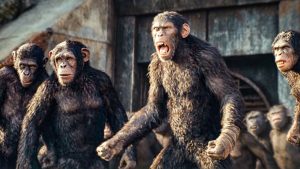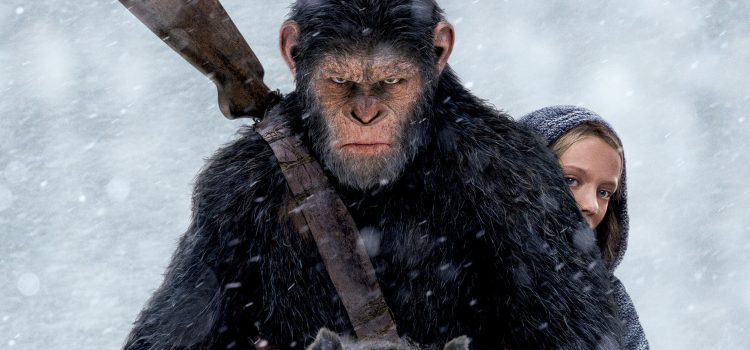
The latest installment in the Planet of the Apes saga, aptly titled “Kingdom of the Planet of the Apes,” signals a fresh chapter in the franchise’s evolution. Departing from the well-trodden path of its predecessors, this film ventures into uncharted territory, offering viewers a glimpse into a post-Caesar era where new heroes emerge, old alliances crumble, and the battle for dominance takes unexpected turns.
A Shift in Focus
Unlike its predecessors, which centered on the charismatic leader Caesar, “Kingdom of the Planet of the Apes” shifts its focus to a new protagonist, Noa. Played by Owen Teague, Noa embodies the spirit of adventure and resilience, navigating a world torn asunder by conflict and upheaval. As the narrative unfolds, viewers witness Noa’s journey from the ruins of his village to the heart of an ape empire, where power struggles and betrayals abound.
Reimagining the Franchise
Director Wes Ball brings a fresh perspective to the franchise, infusing the film with a deliberate pace reminiscent of classic Hollywood epics. Gone are the bombastic action sequences and heavy-handed allegories of previous installments; instead, “Kingdom of the Planet of the Apes” embraces a more restrained approach, allowing its characters room to breathe and evolve.
Characters and Performances
Central to the film’s success are its compelling characters and standout performances. Owen Teague shines as Noa, capturing the character’s blend of intelligence, bravery, and vulnerability with aplomb. Peter Macon delivers a memorable turn as Raka, the wise old orangutan who serves as Noa’s guide and mentor. Meanwhile, Kevin Durand commands the screen as Proximus Caesar, the enigmatic cult leader whose thirst for power knows no bounds.
Themes and Motifs

At its core, “Kingdom of the Planet of the Apes” explores timeless themes of identity, morality, and the consequences of unchecked ambition. As Noa grapples with his place in a world torn apart by conflict, viewers are forced to confront uncomfortable truths about the nature of power and the lengths to which individuals will go to attain it.
Visuals and World-Building
One of the film’s greatest strengths lies in its visual storytelling and immersive world-building. From the lush jungles of the Eagle Clan to the foreboding ape kingdom ruled by Proximus, every frame is meticulously crafted to draw viewers deeper into the rich tapestry of the Planet of the Apes universe.
The Future Awaits
As the franchise looks ahead to its next installment, one can’t help but wonder what new challenges and adventures await. Will Noa rise to become the savior his people need, or will darker forces conspire to tear him down? Only time will tell, but one thing is certain: the Kingdom of the Planet of the Apes is ripe for exploration, and audiences around the world eagerly await the next chapter in this epic saga.
Conclusion
In Kingdom of the Planet of the Apes,” director Wes Ball and his talented cast and crew have crafted a worthy addition to the venerable franchise. By daring to chart new territory and explore fresh themes, the film breathes new life into the saga while staying true to its core principles. As the credits roll and anticipation builds for the next chapter, one thing is clear: the legacy of the Planet of the Apes is far from over.









